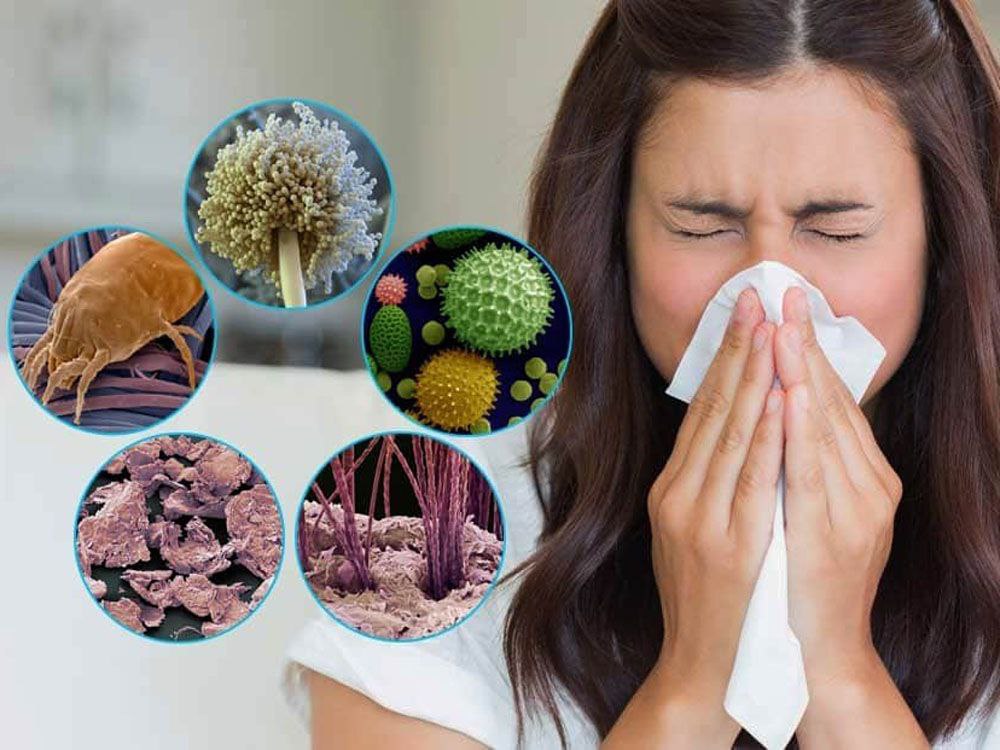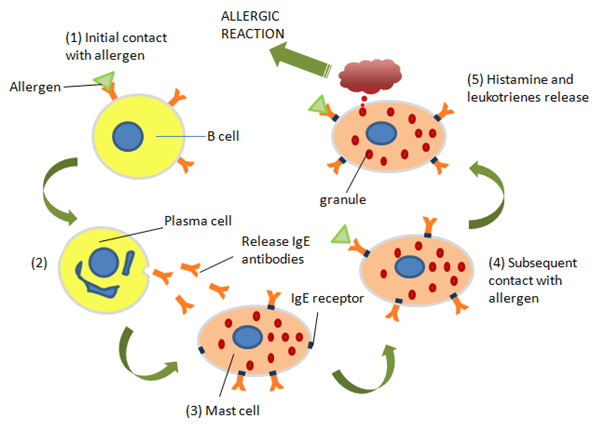Allergy



What is an Allergy?
Allergies are an abnormal response of the immune system. It is an acquired potential for developing adverse reactions that are immunologically mediated to the substances that are mostly harmless to us. This substance (pollen, mould, animal dander for example)is called an allergen.
Atopy is the inheritance tendency to develop allergies.
Atopy increases your risk of developing allergic diseases, especially after allergen exposure.
The prevalence of asthma and rhinitis – two major forms of allergies – was one and 10 percent respectively in 1964 in the country. But, new data as per WAO (World Allergy Organization) shows that about 14 per cent people now have asthma, while over 20 per cent are suffering from allergic rhinitis (AR) which results from an IgE-mediated inflammation of the nasal mucosa. Currently, about 20 to 30 per cent of people in India are having one or more allergic diseases and their prevalence is rising dramatically, the WAO said.
How Allergy develops?
The Development of allergies involves IgE Antibodies. It is a two step process by which individual initially become sensitized to a substance.
During the early stage of sensitization, the individual develops significant amount of IgE antibodies against an inhaled, ingested or injected substance. Memory B cell also appear that are capable of immediately producing more of this specific antibodies when stimulated.
The second stage involves adherence of this newly formed IgE to circulating basophils or to the mast cell located in the skin, mucosal surfaces of gastrointestinal tract or respiratory system.
The new exposure simply added to the existing population so that there are millions of IgE molecule directed against different allergens, present on the surface of each mast cell and basophils.
This process of sensitization does not produce any symptoms that we equate with allergic disease.
The second step in the two step process of becoming allergic involves the re-exposure of a sensitized person to the same allergen. With exposure production symptoms may vary from mild for example sneezing to sudden death.



What Are the Symptoms of an Allergic Reaction?
Common symptoms of an allergic reaction to inhaled or skin allergens include:
1

Itchy, watery eyes
2

Itchy, runny nose
3

Feeling tired or ill

4

Sneezing
5

Rashes
6

Hives (a rash with raised red patches)

What are the types of Allergies?
Allergy related diseases can be classified based on the target organ involvement. Some common types are mentioned below.
1

Nose – allergic rhinitis
2

Skin -Dermatitis
3

Systemic-Anaphylaxis
4

Ear –otitis media

5

Lungs -Asthma
6

Eye -Conjunctivitis
7

Gut -Food allergy

What are the Risk factors for Allergy?
Common symptoms of an allergic reaction to inhaled or skin allergens include:
1

Family history of allergies
2

Animal contact
3

Passive smoking
4

Small family size
5

Western life style

6

Serum IgE>100 IU/ml before age of 6 years
7

Dust mite exposure
8

Eczema
9

Early use of antibiotics
10

diet

Genetics of Allergy
1

If one parent is atopic >= 50 % risk
2

If both parents are atopic >=66 % risk

3
No family history < 20%
*Exact mode of genetic transmission is still not known but the positive family history is the single most important factor to predict the development of allergies.
How Allergy is Diagnosed?
Thorough history should taken by an experienced physician. Also questionnaires are recommended for completeness.
Physical examination is also done to confirm the diagnosis.
Allergy Skin testing
Allergy skin test is confirmatory, highly sensitive, reproducible, rapid and cost effective method to screen existing IgE sensitivities that may be responsible for clinical symptoms.
Method
Skin surface is cleaned with alcohol and dry naturally
Marking is done on the area of skin test site with pen
Then application of a small drop of antigen on the site
A sharp instrument (lancet, hypodermic needle) is passed through the drop, skin is gently lifted, and creating a small break through which extract penetrates.
Interpretation is done after 20 minutes

Factors affecting Skin Test
*Skin test can be performed even at one month of age
1

Age-infancy or old age
2

Race-wheeling more in blacks
3

Seasonal variation pollen allergy
4

Other condition-diabetic neuropathy

5

Sex -no difference
6

Circadian rhythm peak in late evening
7

Skin condition-skin eczema


